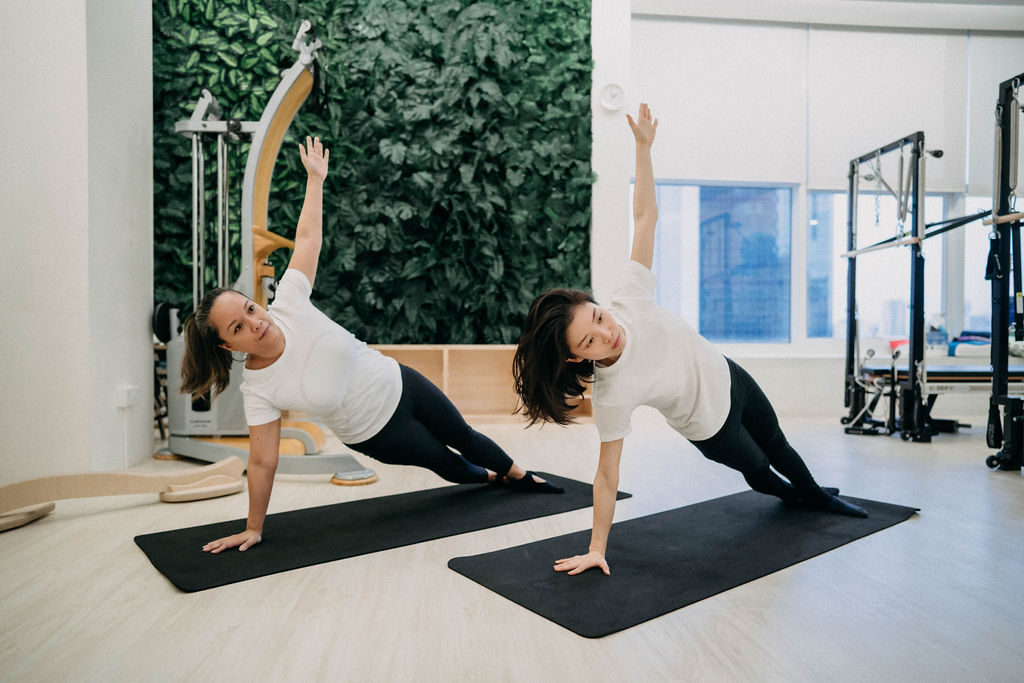
How To Work Out During Ramadan

This year Ramadan falls April 12 – May 12 and sees Muslims across the world fasting from sunrise to sunset while reflecting, spending time with family and celebrating the holy month.
During the fasting period, this means no food for 12-14 hours and no drinks (including water). It’s important to look after yourself and stay healthy during Ramadan, and for those who are particularly into fitness, our team has put together an excellent guide on how to workout during the holy month.
Yes, you can work out during Ramadan
Light to moderate-intensity exercises are safe and recommended for everyone. You don’t need to stop exercising during your fast but have a realistic physical activity plan. The aim is to maintain your pre-fasting exercise routines, but not to make significant progress or break personal best records. Always listen to your body and modify the frequency, intensity, duration, and the type of exercises accordingly.
Timing Is Everything
The time of your workout is just as important as what exercises you do. Choose a time when you are fueled but still have an opportunity to fit in a post-workout meal. The best options are after breaking fast but before your main iftar meal and just before suhoor if you can face getting up that early. If you’re used to training on an empty stomach then just before breaking your fast will also work but lack of hydration could be an issue.
Don’t start a new exercise regime during Ramadan
Ramadan is all about bettering yourself in every way, and your health is an integral part of that. You should certainly look to stay active during this time, but we wouldn’t recommend starting a whole new grueling exercise regime.
If you don’t normally exercise at all, keep movement light by going on a walk, light stretches, low-intensity exercises etc. Picking up intensive training when you’re not hydrated and adequately fueled can be dangerous (and just not enjoyable!). Save your new exercise regime for after the holy month

Eat Smart.
Food is fuel. It’s important to eat right and to keep your energy levels up by focusing on nutritious, colourful foods. Here, Dr Deborah Wong shares some ground rules for healthier nutrition during Ramadan, so that you can get the most out of your workout as well as improving your health:
Do:
- Drink lots of water, herbal tea, soup and fresh raw vegetables
- Wake up early and try to eat “suhoor”, the meal before daylight fasting. It’s extremely important and will make a big difference in your physical and mental state during your fast
- Include high fibres and complex carbohydrates such as rye bread, oat, barely, which slowly release energy to keep hunger pangs at bay for longer in your meals
- Incorporate high protein food such as dairy products, eggs
- Add herbs to your cooking to upgrade the taste and improve digestion
- Eat unsaturated good fats such as avocado, tahini, nuts and seeds
- Incorporate an evening walk after your dinner. This adds extra movement to your day and will help improve your digestion
- Add Vitamin C supplements and juices or teas with fresh ginger and turmeric are great since they are packed full of antioxidants and are great for the immune system
Avoid:
- Fatty, fried foods. Choose fresh raw/steamed/ stir-fried/ baked/ grilled foods instead
- Overeating. Don’t try to compensate for lost calories in the day. Take your time and don’t eat more than you would on a normal day outside of Ramadan
- Foods based on refined carbohydrates (sugar and white flour), such as cakes, biscuits, chocolates and sweets
- Caffeine-based drinks such as tea, coffee, coke, and diet coke. Caffeine is a diuretic and stimulates faster water loss through peeing
- Salty and very spicy food such as cold cuts, smoked fish, olives and pickles, salty cheeses, processed sauces, fast foods, and heavily processed snacks
Rehydrate sensibly
While it might be tempting to guzzle down as much water as you can after sunset, this isn’t recommended. Aim for about 2.5 liters but rehydrate slowly and sensibly until you begin your fast again so your body can absorb it properly. If you train after breaking fast, be sure to sip water during your training and after.
Key Takeaways
- Eat smart. Remember, food is fuel. Be smart about the food you’re intaking during your break as this will support your exercise, mood and performance the next day.
- Don’t start a new exercise routine. Try to maintain your existing workout or take it down a notch to light to moderate-intensity exercises.
- Rehydrate slowly and sensibly until you begin your fast again so your body can absorb it properly.
- Listen to your body and modify the frequency, intensity, duration, and the type of exercises accordingly.
It’s important to be realistic, given your lifestyle changes during Ramadan, your fitness levels and muscle mass will likely change too and that’s OK. Remember, consistency and fueling your body intelligently is key, and losing a bit of muscle mass shouldn’t be your main concern during Ramadan. Fast for a higher purpose and never lose sight of that.
Share — Facebook Twitter
 WHATSAPP
WHATSAPP


